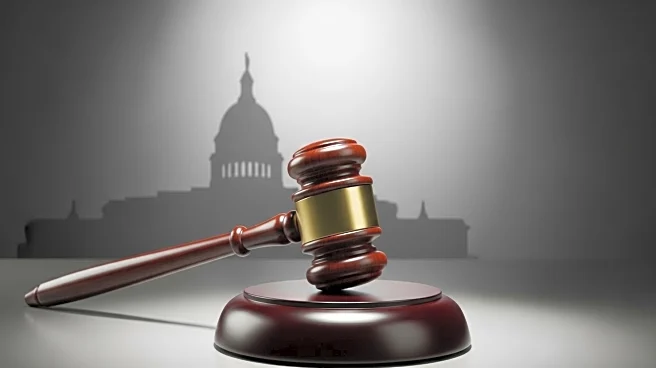What is the story about?
What's Happening?
Governor Mike Dunleavy of Alaska has indicated a potential legal battle concerning his executive order to establish a Department of Agriculture. In a letter to lawmakers, Dunleavy highlighted a disagreement between the executive and legislative branches regarding the constitutionality of introducing an executive order during a special session. Legislative leaders argue that the order violates constitutional procedures, as special sessions are limited to 30 days, whereas the constitution allows 60 days for legislative consideration. Despite the legislature's inaction on the order, Dunleavy claims it has become law. The legislature has allocated $100,000 for a lawsuit to challenge this interpretation, although no lawsuit has been filed yet. The administration is proceeding with the department's creation, although details remain sparse.
Why It's Important?
This development is significant as it underscores ongoing tensions between Alaska's executive and legislative branches over constitutional interpretation and governance. The outcome of this potential lawsuit could set a precedent for future executive orders and the balance of power in the state. The creation of a Department of Agriculture could impact Alaska's agricultural policies and economic development, affecting stakeholders such as farmers, businesses, and consumers. The legal clarification sought by both branches may influence how executive orders are handled in special sessions, potentially affecting legislative processes and executive authority in Alaska.
What's Next?
If a lawsuit is filed, it will likely lead to a court decision that could clarify the constitutional limits of executive orders during special sessions. This decision could influence future interactions between the executive and legislative branches in Alaska. The administration's next steps include appointing a commissioner for the new department and detailing its structure and functions. Legislative responses and potential adjustments to the executive order process may follow, depending on the court's ruling.
















